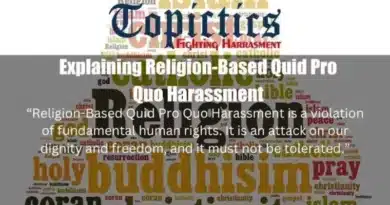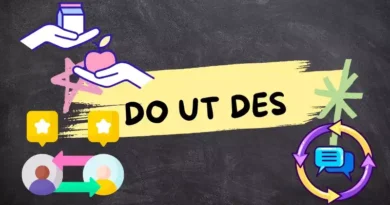Exploring the Quid Pro Quo Corruption Definition in Depth
Quid pro quo corruption involves public officials exchanging favors, advantages, or services for personal gain. This form of corruption is characterized by the misuse of official power to secure private benefits, often seen in political donations or similar influences. It undermines ethical governance and public trust, as officials provide preferential treatment or biased decisions in return for contributions or favors.
The reciprocal nature of these exchanges, where both the public official and the contributor benefit at the expense of ethical conduct, is central to quid pro quo corruption. This behavior is illegal and erodes the integrity of public office and the democratic process.
Takeaways
| Key Points |
|---|
| Quid pro quo corruption involves the exchange of favors, services, or advantages between public officials and other parties for personal gain, often undermining ethical governance and public trust. |
| This form of corruption typically manifests in political donations, gifts, or promises of benefits in return for preferential treatment, such as legislative support or regulatory leniency. |
| It erodes the integrity of public office and the democratic process, with both parties benefiting at the expense of transparency, fairness, and accountability. |
| Tackling quid pro quo corruption requires strong legal frameworks, enforcement, institutional reforms, and public awareness to expose and deter such covert exchanges. |
| Technological innovations like e-governance, blockchain, and AI, alongside international cooperation and citizen engagement, play a critical role in combating this pervasive challenge and preserving ethical governance. |
The Mechanics of Quid Pro Quo Corruption
At its core, quid pro quo corruption operates through a straightforward mechanism: a public official receives something of value and, in return, provides a benefit. This benefit could be in legislative support, regulatory leniency, or other official actions that favor the contributor.
The exchanged value can be monetary, such as political donations, or non-monetary, like gifts, services, or even promises of future benefits. This exchange creates a corrupt relationship where decisions are influenced by private gain rather than the public good.
Examples and Contexts
Quid pro quo corruption can manifest in various contexts. In politics, it is often associated with campaign contributions. For instance, a business might donate to a politician’s campaign with the expectation that the politician will support legislation favorable to the business.
This creates a conflict of interest where the politician’s decisions are swayed by the contributions rather than the constituents’ needs.
In the corporate world, quid pro quo corruption might involve a company offering gifts or incentives to government officials in exchange for favorable treatment in contract awards or regulatory approvals. This distorts fair competition and compromises the quality and safety of public projects and services.

Legal and Ethical Implications
The legal framework in most democratic societies strictly prohibits quid pro quo corruption. Laws and regulations are designed to prevent such exchanges and hold those who engage in them accountable.
However, enforcing these laws can be challenging due to the often covert nature of the transactions. Proving the existence of a quid pro quo arrangement requires clear evidence of the exchange, which is not always easy to obtain.
Ethically, quid pro quo corruption is condemned because it betrays public trust. Public officials are expected to act in the public’s best interests, not for personal gain. When they engage in corrupt exchanges, they undermine the principles of transparency, fairness, and accountability essential to good governance.

Historical and Modern Cases
Historical cases of quid pro quo corruption provide insight into how such practices have evolved and how they continue to impact societies. One notable example is the Teapot Dome scandal of the 1920s in the United States, where government officials accepted bribes from oil companies in exchange for favorable leases on public lands. This scandal highlighted the deep-rooted corruption within the government and led to significant reforms in public ethics and accountability.
In modern times, quid pro quo corruption remains a significant concern. Recent cases involving high-profile politicians and business leaders illustrate how pervasive and damaging such practices can be. These cases often involve complex schemes where the exchange of favors is concealed through layers of intermediaries and legal entities, making detection and prosecution more difficult.
Preventive Measures and Reforms

Preventing quid pro quo corruption requires a multifaceted approach. Strong legal frameworks and rigorous enforcement are essential to deter and punish corrupt behavior. Transparency and accountability mechanisms, such as public disclosure of campaign contributions and government contracts, help expose potential conflicts of interest.
Institutional reforms can also play a crucial role. Strengthening the independence and capacity of anti-corruption agencies, implementing strict codes of conduct for public officials, and promoting a culture of integrity within public institutions are critical steps towards reducing corruption.
Public awareness and civic engagement are equally important. Educating citizens about the harms of corruption and encouraging them to hold their leaders accountable can create a powerful check against corrupt practices.
Whistleblower protections and channels for reporting corruption also empower individuals to take action against corruption without fear of retaliation.
The Role of International Organizations
International organizations play a significant role in combating quid pro quo corruption. Entities like the United Nations, the World Bank, and Transparency International provide frameworks, guidelines, and support to countries striving to reduce corruption.
These organizations promote international cooperation and the sharing of best practices, which is essential in tackling a problem that often transcends national borders.
Conventions such as the United Nations Convention against Corruption (UNCAC) establish global standards for preventing and criminalizing corruption, including quid pro quo arrangements.
By ratifying and implementing these conventions, countries commit to taking concrete actions against corruption and cooperating with each other in the fight against it.

Technological Solutions and Innovations
Advancements in technology offer new tools to combat quid pro quo corruption. Digital platforms for transparency, such as online databases of government contracts and public officials’ financial disclosures, enhance public access to information and make it easier to detect and investigate corrupt activities.
Blockchain technology, with its potential for creating tamper-proof records, can increase the integrity of public transactions and reduce opportunities for corruption. E-governance systems that automate public services can also minimize human discretion and the associated risks of corrupt practices.
Artificial intelligence and data analytics are emerging as powerful tools for identifying patterns and anomalies that may indicate corrupt behavior. These technologies can help uncover hidden connections and provide actionable insights for anti-corruption efforts by analyzing large volumes of data.
Conclusion
Quid pro quo corruption remains a significant challenge to ethical governance and public trust. Its mechanism of exchanging favors for personal gain undermines the principles of transparency, fairness, and accountability fundamental to democratic societies. Combating this form of corruption requires robust legal frameworks, institutional reforms, public awareness, and the innovative use of technology.
International cooperation and the support of global organizations further strengthen these efforts. By addressing quid pro quo corruption comprehensively, societies can protect the integrity of public institutions and promote a culture of honesty and accountability. This ongoing battle against corruption is crucial for ensuring public officials serve the public interest, fostering trust and confidence in governance.
FAQ
How does quid pro quo corruption differ from other forms of corruption?
Quid pro quo corruption specifically involves a direct exchange of favors or advantages between a public official and another party, where both parties benefit from the arrangement. Other forms of corruption, such as embezzlement or nepotism, do not necessarily involve this reciprocal exchange but instead involve the misuse of power or resources for personal gain in different ways.
What are some common indicators of quid pro quo corruption?
Common indicators include unusual patterns of donations or gifts to public officials, decisions or actions by officials that disproportionately benefit a specific donor or entity, lack of transparency in decision-making processes, and instances where official actions coincide closely with private transactions or contributions.
How can citizens help combat quid pro quo corruption?
Citizens can combat quid pro quo corruption by staying informed about local and national government activities, supporting transparency initiatives, reporting suspicious activities to appropriate authorities, and advocating for stronger anti-corruption laws and regulations. Public participation in elections and civic activities also helps hold public officials accountable.
What challenges exist in prosecuting quid pro quo corruption cases?
Prosecuting quid pro quo corruption cases is challenging due to the need for clear evidence of the exchange agreement, which is often concealed. Additionally, the sophisticated methods of hiding these transactions, such as intermediaries and legal entities, complicate investigations. Legal standards for proving quid pro quo arrangements can also vary, requiring robust evidence to meet the burden of proof in court.









